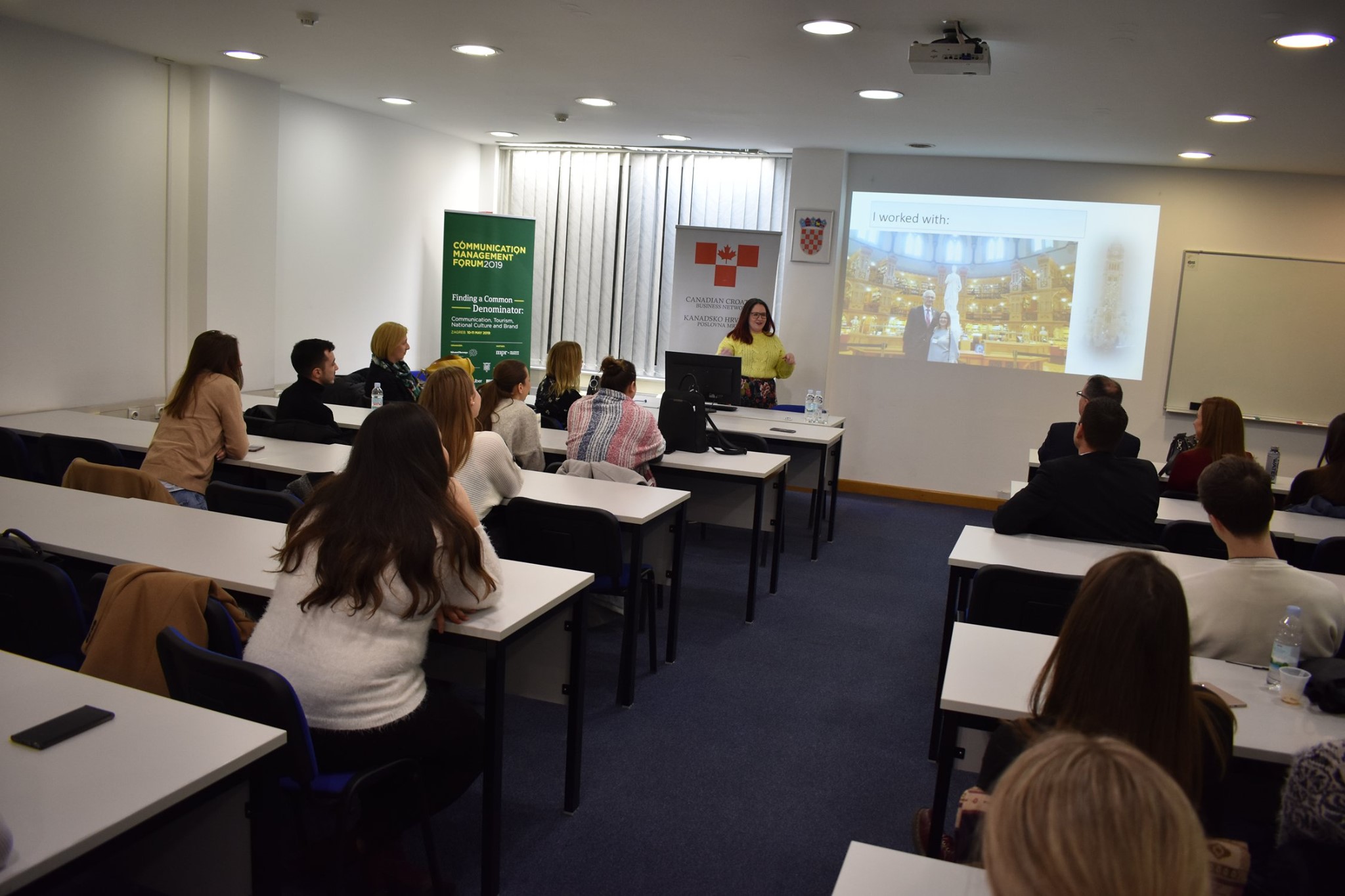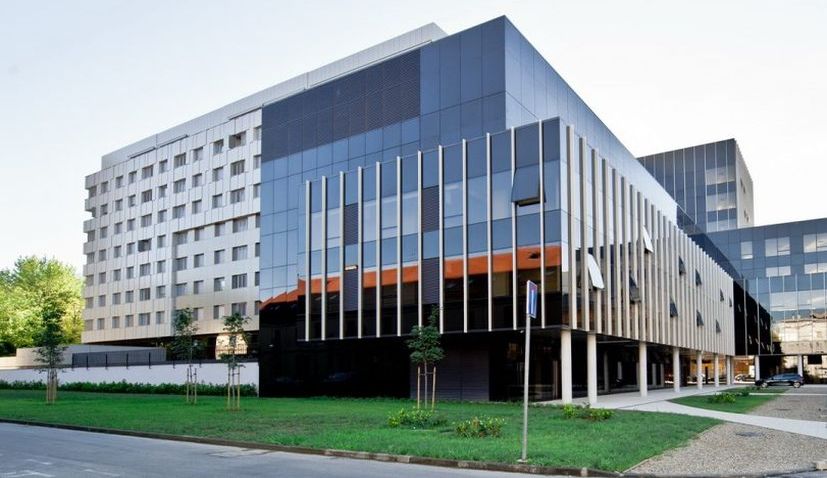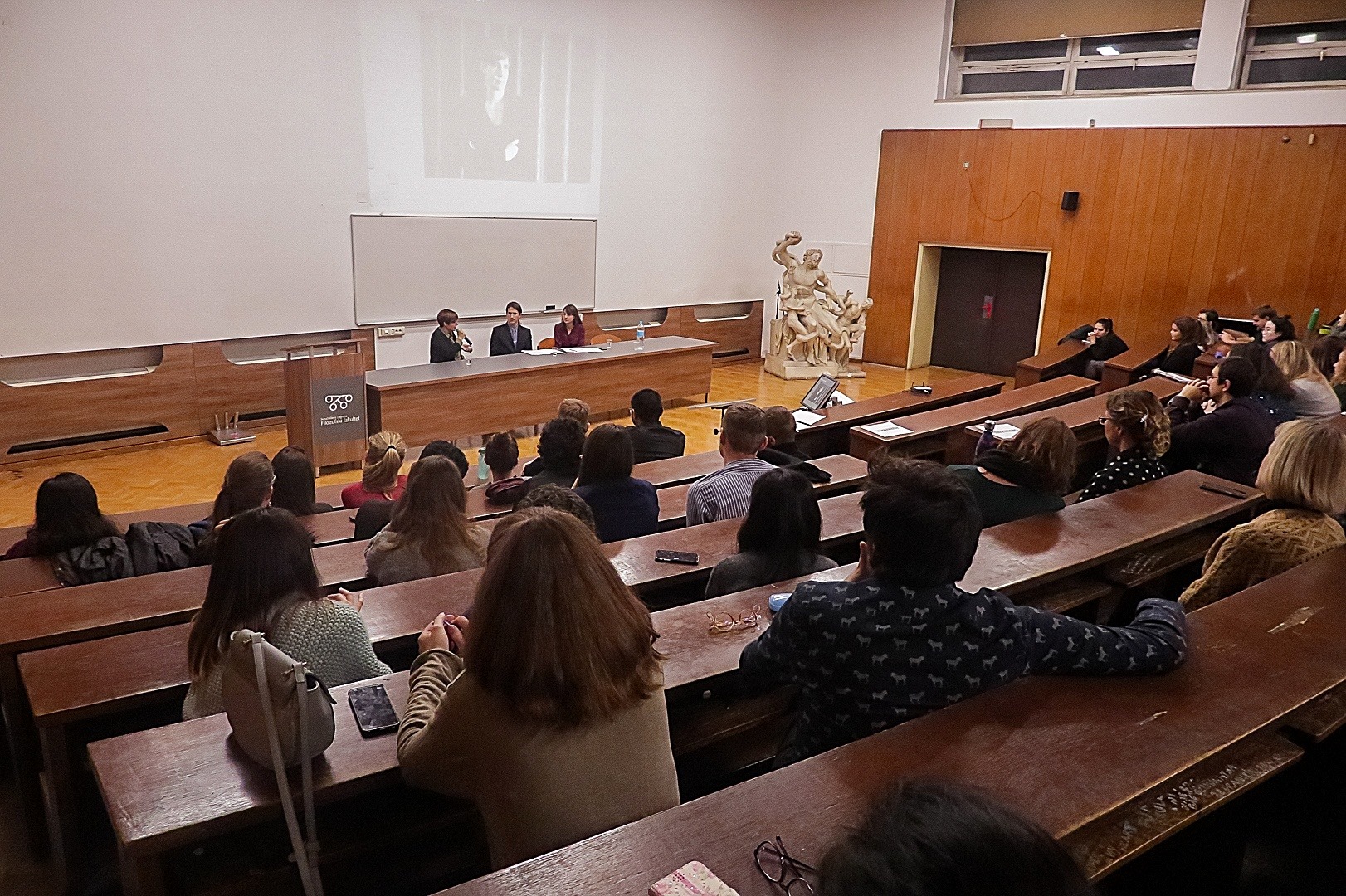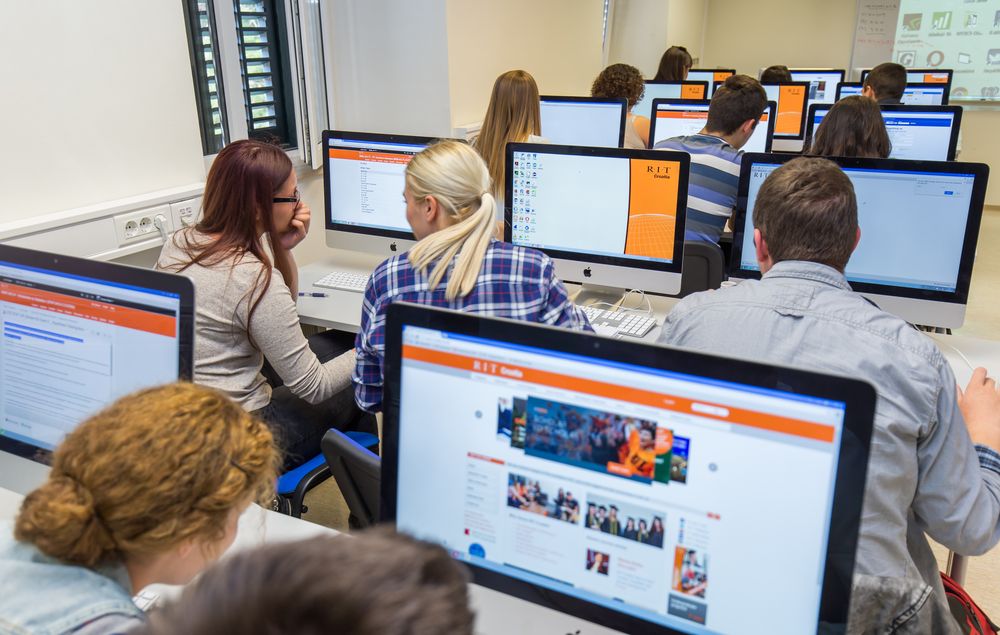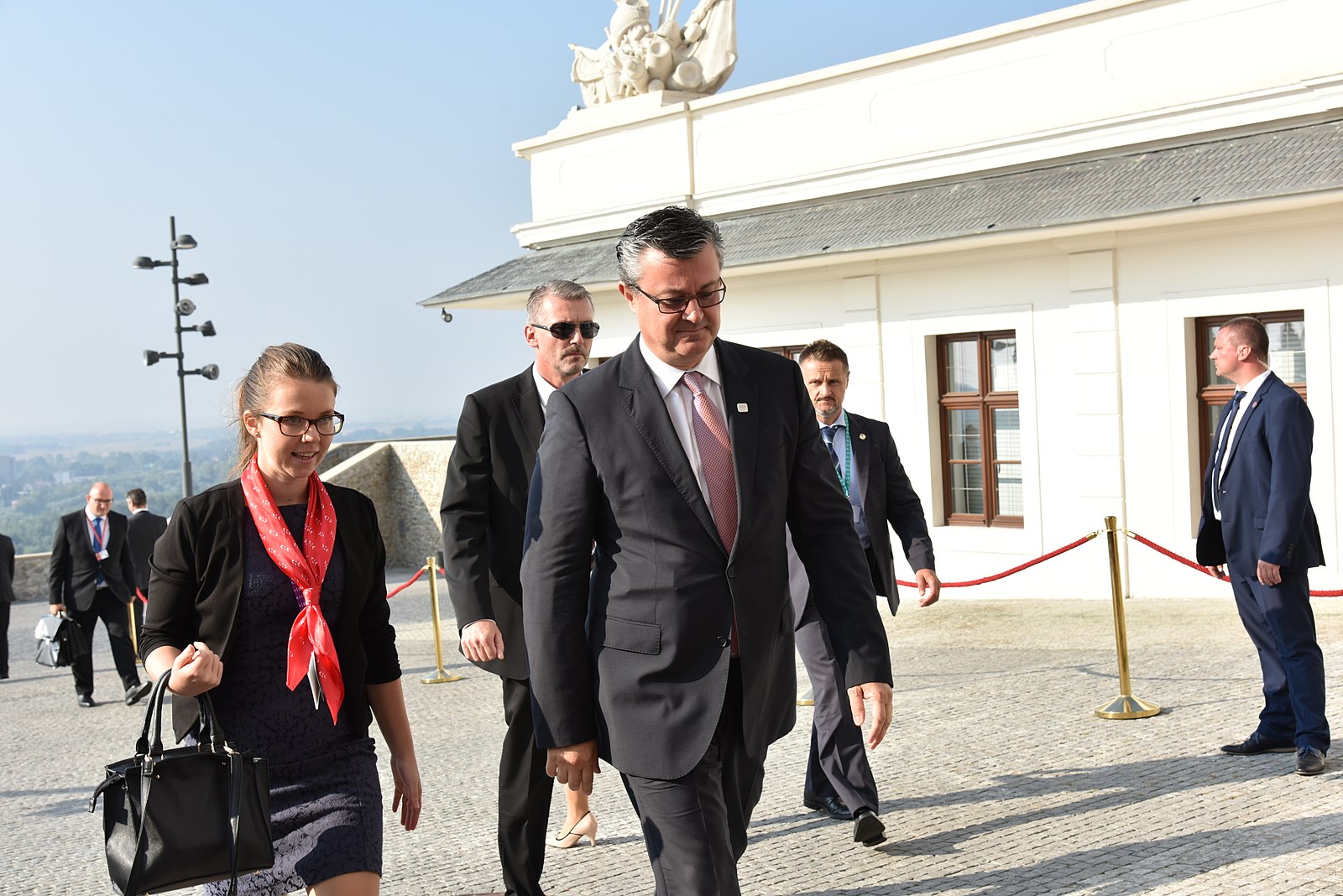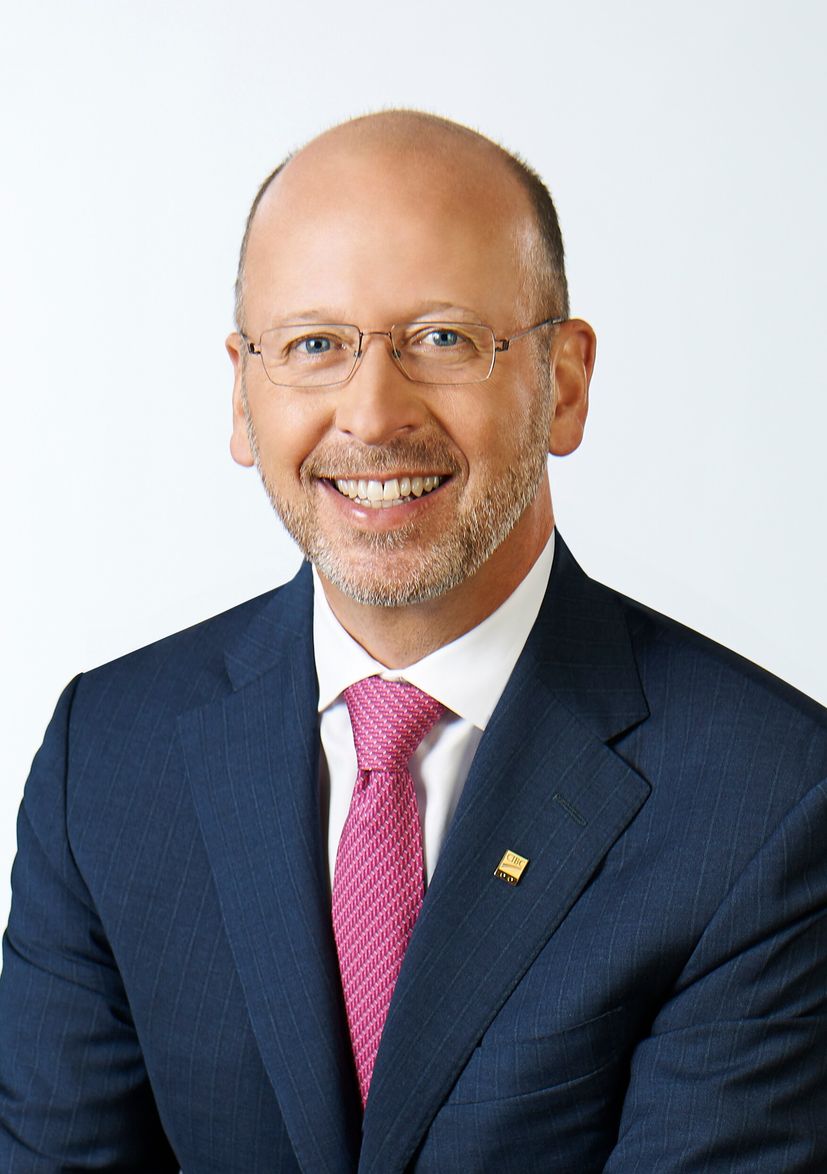Download presentation slides here.
On Monday February 15th, Crodiaspora, PwC Croatia, and Imelum in cooperation with the Canadian Croatian Chamber of Commerce organized a webinar detailing information about EU funds available in Croatia from 2021-2027. Niko Letilović, Neven Habunek and Goran Šaravanja answered questions and clarified upcoming EU funds availability and use.
An important point to highlight is that EU funds are not just available to those in Croatia, those that are residing outside of Croatia may also benefit from EU funds. This is an opportunity for Croats abroad to take advantage of this source of financing and to interact economically with their homeland.
Since Croatia will be the biggest net recipient per capita of EU funds from 2021-2027, there was a great deal of information that was addressed in this webinar. Below is a compilation of some of the many topics that were discussed:
Croatia’s [EU] Macroeconomic overview
Multiannual financial framework
Progress of the Republic of Croatia in the programming of EU funds
Institutional Framework of the Republic of Croatia
Disbursement of EU funds from 2007 to 2020
Financial allocation and amount of support
Content of the Project Proposal
Croatia’s [EU] Macroeconomic Overview
To Watch Goran’s part of the presentation click here.
Goran Šaravanja, Director of Imelum, introduced the webinar by highlighting the macroeconomic boost that financing from the EU has brought to the Croatian economy. Before Croatia was able to access EU funds, growth was mostly financed by foreign held debt and ergo Croatia had a massive current account deficit. Since 2014, Croatia has had a continuous current account surplus correlating with the influx of EU funding available to Croatia. Goran does not credit this solely to EU structural funds, but it is one of the primary changes that helped Croatia come out of its recession and eased reliance on foreign debt.
Since EU accession Croatia has enjoyed an average GDP growth of 3%, also the levels of foreign debt decreased partially due to EU funds. Despite the Coronavirus pandemic in the first 10 months of 2020 privately held foreign debt came down by 1.3 billion euros. Additionally, contrary to public criticism about Croatian exporting capabilities, Croatian exports have risen over 50% since joining the European Union. Goran points out that goods exported were minimally affected in 2020. He continued to say that services, such as those offered in the tourism industry, were hard hit which made Croatia’s average export numbers plummet.
In conclusion, Goran says, by receiving EU structural funds Croatia was able to balance its current account deficit, lower Croatia’s dependence on foreign debt and decrease Croatia’s privately held debt. This helped Croatia’s economy grow in a more sustainable fashion. Compared to the previous financial crisis of 2008-09, Croatia’s balance sheet is much more robust with debt to GDP ratios well below 100% and this will continue to decrease due to the next round of EU funds being provided. The amount of 24.4 billion euros is nearly 50% of Croatia’s GDP in 2020. Considering all economic indicators, economic growth seems imminent for Croatia in the next multiannual financial period.
Review of EU Budget Packages
To watch this part of the presentation click here.
Neven Habunek, an EU funds expert from PwC, outlined the financial instruments that are available to the private sector and the government of Croatia. The EU provides funds in a 7-year framework. The European commission allocates the budget to each member state according to certain needs. Those who are below the EU average are a net recipient of EU funds. Due to the COVID-19 crisis the EU has introduced a new assistance package called, “Next Generation EU”, which will significantly help Croatia over the next 7 years.
The Next Generation EU fund holds just over 750 billion euros that is available for member states. The money that is allocated to the Next Generation EU fund is intended to go to the recovery and resilience facility. Each member state needs to make a recovery and resilience plan with concrete financial indicators allocating the fund for differing purposes.
Croatia between 2021-2027 will receive 24.4 billion euros which is more than twice the amount received in the previous multiannual financial period. In addition to the 24.4 billion, Croatia still has money left from the previous multiannual financial framework. Each fund has a timeframe of 3 years provided to allocate most of the funds, then an additional 3 years to complete allocation of those funds.
Croatia’s biggest challenge will be allocating the Next Generation EU fund which requires 9.9 billion euros to be allocated within the next 3 years. It is predicted that the Next Generation EU funds will be mostly allocated to public projects. From the 14.3-billion-euro multiannual financial framework, the Croatian private sector will have the most to gain as the European commission has suggested that most of these funds will be allocated into private sector grants.
Multiannual Financial Framework
For this part of the presentation click here.
One technique known as overbooking was clarified. Overbooking is a technique that EU fund ministries use to ensure that the greatest amount of money will be allocated for a particular program. Neven gave an example of this concept in which the allocated funds in multiannual financial framework for Croatia was 10.73 billion euros in 2014-2020. Allocated funds of over 113% were contracted (meaning those who applied for the funds and won the tender), while only 47.16% were declared and 40% were certified. Certification means that the government declared the allocation and certified the statement of expenditure.
Progress of the Republic of Croatia in the Programming of EU Funds
For this part of the presentation click here.
As Neven explains, currently the government is planning and proposing amounts for the national recovery and resilience plan. The deadline for submitting the plan to the European commission is the 30th of April and the final plans should be known to the public in the months following. When working with multiannual financial frameworks, the government needs to create programs which detail financial indicators that best distributes the money provided.
What Neven highlights from the last multiannual financial framework is that Croatia did not have enough quality investments which ultimately resulted in Croatia not fulfilling their potential in using all the allocated EU funds. As the government is working to plan EU fund allocation, Neven says that Croatians abroad thinking about investing in Croatia have an advantage in being able to plan their investments ahead of time due to the EU funds framework. Croats abroad should follow the developments of where funds are planned to be allocated and participate in September 2021 when there will be a public consultation about the proposed plans.
Financing Instruments
For this part of the presentation click here.
Niko Letilović, also an EU funds expert at PwC Croatia spoke extensively about the breakdown of the EU financial instruments. The European Structural and Investment Funds are broken down into 5 financial instruments: The Cohesion Fund, European Regional Development Fund, European Social Fund, Maritime and Fisheries Fund and Agricultural Fund for Rural Development. The main financial instruments that concern businesses in Croatia is the European Regional Development Fund which supports innovation, SMEs, the digital agenda, and the low carbon economy.
The other regional policy funds are the Cohesion and European Social Funds. The Cohesion Fund is available to Croatia since this fund is targeted for countries whose GDP per capita is less than 90% of the EU average. The European Social Fund is the main tool for social mobility in cases such as helping people get a better job, access to higher education for at risk groups etc.
Institutional Framework of the Republic of Croatia
For this part of the presentation click here.
In Croatia, the most important government body concerning EU funds is the Ministry of Regional Development and EU Funds. This body is further divided into 3 main compartments: 2 compartments include the Ministry of Regional Development and EU Funds and the Ministry of Agriculture.
The first compartment of the Ministry of Regional development is further divided into intermediary bodies. the intermediate bodies are: The Ministry of Physical Planning, Construction and State Assets, Central Finance and Contracting Agency for SMEs innovation and investments and Environmental Protection and Energy Fund. The second compartment of the Ministry of Regional Development intermediary bodies includes: The Ministry of Labor, Pension System, Ministry of Tourism and Sport, Office for the Cooperation with NGOs, Croatian Employment Service, and the National Foundation for Civil Society Development. For the Ministry of Culture there is one intermediate body, which is the Agency for Agriculture, Fisheries and Rural Development (PAAFRD).
Disbursement of EU Funds from 2007 to 2020
For this part of the presentation click here.
In the 2014-2020 period, there was 10.7 billion euros that were distributed to Croatia. Niko highlights that in the pre-accession period before Croatia became a member of the European Union, Croatia was receiving funds from the Instrument for Pre-accession Assistance (IPA). In 2012 Croatia received 156 million euros. Assistance from the EU drastically increased when Croatia entered the EU in 2013 where Croatia received over 1 billion euros in 2013 alone. The amount that Croatia has been receiving from the EU has seen a steady yearly increase. The increase in 2021 is expected to double the amount seen in the past 7 years combined.
Information about “Call” for Project Proposals
For this part of the presentation click here.
There are two different types of EU project proposals. There are temporary and permanent calls. Temporary calls are when the tender is open for a short period of time and the person who has the so called “fastest finger”, is most likely to win the proposal. Opposite to that, permanent calls are when all projects that are submitted after a specific time are collected and are considered based on quality rather than on chronological order.
Financial Allocation and Amount of Support
For this part of the presentation click here.
Each call has a certain cap in terms of the amount that can be allocated. An example would be in the Energy Efficiency call, the maximum possible amount of grant awarded per project was 2.7 million euros in the 2014-2020 framework. Niko highlights the co-financing rate is based on the size of a given business: a larger enterprise, the co-financing rate is usually smaller but smaller enterprises usually have a bigger co-financing rate. This is likely due to financial risk associated in investing in smaller companies.
Content of the Project Proposal
For this part of the presentation click here.
The project proposal should be completed and submitted through the eFunds system and usually contains the following documents: specific application form for the grant, business plan, applicant statement, infrastructure component of the project (if it is construction-permits, architecture other needed documents), bank statement and letter of intention from a bank, and there may be additional documentation such as court documentation, annual financial report etc.
EU Project Workflow
For this part of the presentation click here.
The usual time frame from the application process to the last post allocation reporting is about 5 years. The application deadline is usually 3-6 months from the first call, another 4 to 6 months for the project selection committee to select a project, then once chosen there is a 1 to 2 month window to sign the general grant agreement. After the agreement is signed it takes up to 24 months for project management preparation and procurement procedures to be settled. After the project is done there is a final audit of the project and after 5 years there is another post-mortem reporting of the projects results.
Additional Questions
In addition to the 45-minute presentation by Imelum and PwC Croatia, there were many questions that were posed by the audience. To listen to the question-and-answer session click here.
Concluding Remarks
Goran: “My final thoughts is that this is a net positive. Clearly there are a lot of opportunities. You need to do your homework but when I got here 20 years ago and, you saw it in one of Niko’s slides, where we were getting 100-150 million a year [Euro, financing from the EU] and then it has gone up 10- fold. The first slide I showed you, the secondary balance where the transfers come through it is not just EU funds. It is a positive story it is all about the way you approach issues. Clearly there is lots to do which is why people like yourselves are here to hold someone’s hand and make sure they go through the process properly, but there are many more opportunities here than there were 20 years ago.”
Neven: “We need to be proactive. Seven years ago, we reacted like we just received this information but now we are facing an opportunity to plan the next seven years. We together have an opportunity because we can fill the system with projects and there will be more reactions to us registering for projects. Start to prepare your project ideas, start to build your project pipelines, start to get in touch with local consultants, potentially with us, and try to see how we can prepare your companies to be efficient in procuring and using the funds most effectively.”
Niko: “I would just like to end on a positive note. As Neven and Goran mentioned, there are a lot of opportunities. This will be a really good period for Croatia, and we cannot do it by ourselves in Croatia so we would like to use this opportunity to ask all of the Crodiaspora, I also have some relatives in diaspora, to join us on this journey because we really think that only together, we can win this situation.”
John: “I’ll just add one more thought myself to close it up. In the words of Wayne Gretzky, a famous Canadian hockey player, ‘you will not score on 100 of the shots you don’t take.’ So, you must try. If you do not take the shot, you won’t score. The future does look right, all four of us are here and we’re trying to present objectively, I think, a very positive image of Croatia and rightfully so. I think things can be done here so why not here as compared to anywhere else around us?”
Watch the concluding remarks by clicking here.





















